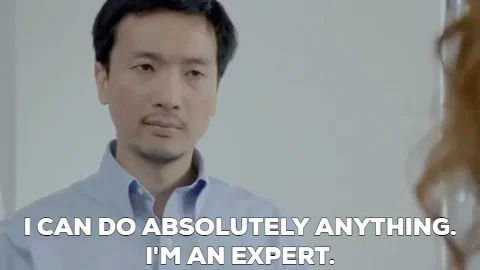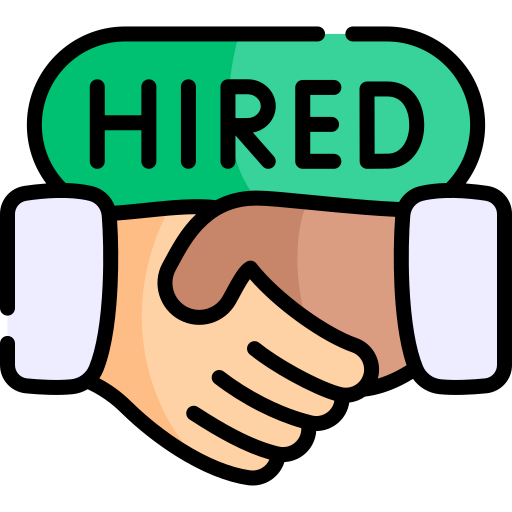
This logo isn't an ad or affiliate link. It's an organization that shares in our mission, and empowered the authors to share their insights in Byte form.
Rumie vets Bytes for compliance with our
Standards.
The organization is responsible for the completeness and reliability of the content.
Learn more
about how Rumie works with partners.
Congratulations! You've graduated from college/university.
Next stop: job searching!

After I graduated, my loved ones encouraged me to stay positive and persistent throughout the job hunting process.
And you know what? For the most part, I was...though I couldn’t help but wonder, what else could Ido to increase the odds of landing a job?
Looking back, I discovered some effective job search tips along the way.
1. What you already have, matters

Highlight the skills gained from college/university extracurricular activities.
You may have scooped up skills as a waiter, tutor, library assistant, or society secretary. Write a list of these skills. Narrow this list down to the skills transferable to the jobs you're applying for.
For example, I worked as a library assistant and one of the transferable skills from that is customer service.
Your marks are also a strength.
If you were a top student in your class or you won awards, don't be shy. Let it be known!
Keep in touch with your college/university.
Most institutions have a career services unit or alumni programs. These are helpful places to get free job search coaching and job listings.
Did you know?
If your resume and cover letter skills are on point, the next step is interviewing skills. Rumie's library of interview prep tips can help you get ready.
2. Gain experience through generalist roles

Non-degree specific jobs exist!
Employers will often opt for candidates with any type of professional experience, even for entry-level roles.
Consider applying for generalist roles that require a degree but aren't specific about the major. This will pave the way to being a top candidate.

Look for these generalist opportunities within the industry that you want to go into.
These roles should allow you to shadow individuals in your desired career field. For example, if you’re an aspiring software developer, apply for a customer technical support job at a software or IT company.
Generalist roles include but are not limited to management consultant, coordinator, administrator, virtual assistant, etc.
Quiz
You have completed your qualification in biology. What would be good generalist roles to apply for? Select all that apply:
Roles directly related to your field of study may not be landing you interviews or offers. While both biology tutor and biology research assistant roles involve biology knowledge, they wouldn't be considered "generalist" roles for someone with a biology qualification. By applying for generalist roles, you gain valuable work experience that you can use as a stepping stone to apply for roles directly related to your major. It's important to be strategic about how you gain professional experience. At a base level, this is what employers are looking for.
Did you know?
Focus your initial search on entry-level/junior roles in your desired career.These roles usually offer the direct training and experience you need to thrive in your chosen field. Generalist roles in your desired industry are still, however, a valuable stepping stone to becoming a top applicant for the desired entry-level/junior roles.
3. Keep busy

Find and use recruitment agencies that have positive reviews and high success rates. Prioritize agencies that specialize in graduate recruitment and entry-level placements.

Network and connect at industry events/webinars or platforms like LinkedIn. These are great environments to share that you are looking for work or a mentor to help you soar. To go from zero to hero with LinkedIn, check out this personal branding e-book on how to use it effectively.

Volunteer strategically. Simply volunteering for any gig can put you in a worse off position. Be deliberate.
Here are some vital questions to ask before making this commitment:
Is there a clear "job" description?
Will it sharpen the critical skills required for the jobs you are applying for?
Is the recruitment process communicated upfront?
Is there an onboarding/induction, specific to the role?
Are there senior people in the team that can possibly coach you?
Aim for at least 4/5 answers above to be a YES. Check out this volunteer opportunities site to try this out.
Did you know?
Enroll in work readiness programs and boot camps. Your journey is unique, so find programs that provide personalized coaching, rather than general info that you can find from Google. Check out this Byte on how to compete against more experienced applicants.
4. Stay in the loop

Read, follow, and analyze.
Read articles about developments in the career field or industry. Pay close attention to how market conditions affect your desired job market; for example, pandemics, AI, and climate change.
Follow industry influencers on social media. They usually post about important skills to have, hiring trends, and sometimes open job opportunities. For example, I followed a LinkedIn influencer who shared tips on how to use Microsoft Excel because this was a skill that was required for the jobs that I was applying for.

Analyze job ads to understand the requirements, and keywords and to determine if you are a fit. Search for the keywords rather than just the titles. Some job titles might not be what you're expecting.
Did you know?
Look through as many LinkedIn profiles that have the job title you are working towards. This will give you insights about what career trajectories exist, and confirm if you’re on the right path or require more upskilling. They will also give you a good idea of what the first 1-2 years of your career may look like.
This Byte has been authored by
Nondumiso Thango
Digital Learning Specialist
BSc, PDBA, ODETDP

